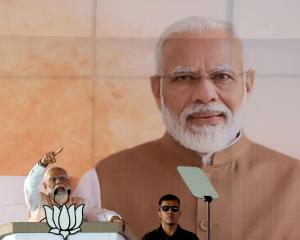Richard Cubie believes the Government's White Paper for Vulnerable Children contains major contradictions.
The White Paper for Vulnerable Children after its publication slipped off the New Zealand media radar rather too quickly for my liking.
Unfortunately, the debate was subsumed by the continuing government internet-booth security farce and the lacklustre performance of the All Blacks, depressed at having to wear shirts contaminated by the AIG logo.
Vulnerable children comprise a topic where there can never be enough dialogue and until there is a sensible consensus, it should always be in the public domain.
The White Paper was, according to Social Development Minister Paula Bennett, "What I come into Parliament for." and "a piece of work beyond politics".
On reading the key points at first, and some of the detail later, I began to wonder if anyone had read my submission to the Green Paper, or if anyone had read any of the other 10,000.
There are many areas of contradiction within the White Paper. Three stand out as worthy of commentary because they indicate that during the consultation process only a superficial consideration was taken of best practice and experience elsewhere in the developed world.
First, under the Reporting of Child Abuse, the statement is made that "the Government will not be legislating for mandatory reporting". This is not only folly, but a charter for groups of people who will conspire to prey on children. New Zealand is no different from any other country in that there are individuals and groups of people within the population who will abuse or neglect children.
Also, New Zealand has the same difficulties in recognising and acknowledging the "elephant in the room" that is the differences in the way in which abuse and neglect have been dealt with historically by different cultural and community groups. Therefore, the lack of mandatory imperative upon the individual and professional to disclose information inevitably leads to the ability of a predator to "groom" those people in positions of trust with children, who are the very people we expect to protect them.
The recent example of the deputy principal in Northland who was effectively able to "groom" a whole community before any action was taken underlines this point.
The lack of mandatory reporting also underlines the principle that the organisation within which the individual operates cannot under any circumstances, and should not, investigate a complaint or disclosure. People's inability to believe the worst of a friend or professional colleague when the cold evidence is before them, or the lack of an easy method of disclosing their suspicions, leads to the sort of scandal that is emerging in Britain in relation to Jimmy Savile.
If anything would compel legislators to insist on making reporting mandatory to an easily identifiable lead agency, this emerging horror story would, and I believe that any child protection manager in Britain would rather follow an indefinite number of false trails and disclosures rather than miss one that would lead to a child being properly protected.
The second point arises from the section "Working together and sharing responsibility". The notion a multi-professional committee which is "jointly accountable" has the potential for a focused, dynamic and effectively consistent quality of work is incorrect.
Actually, it has the potential for complete inertia and fudges the question of who takes responsibility. Thus, timelines (some of which may have to be calculated in hours) are not achievable.
If a child becomes vulnerable, the contingencies and resulting consequences have the potential to destroy that child's life. Quick and effective first responses are therefore essential to mitigate those factors damaging for the child.
What is needed is a first-line response team led by experienced, expert and dedicated professionals who are clearly seen to be the lead agency. This would logically be the Police or Child Youth and Family.
Third, the paper misses the point on another crucial issue.
Why are the midwives and Plunket under, for example, an alliance to the Children's Commissioners' Office not seen as the obvious monitoring services that through their hands-on experience would be able to monitor families and identify children potentially at risk?
All in all, I am led to think some of these issues are less about vulnerable children and more about money.
If the White Paper really is "beyond politics", as it should be, and its content really reflects the result of four years' dedication, then it is time the minister started to listen to sound and sensible advice and be prepared to incorporate change into a revision.
- Richard Cubie lives in Wanaka and has a background in education.












